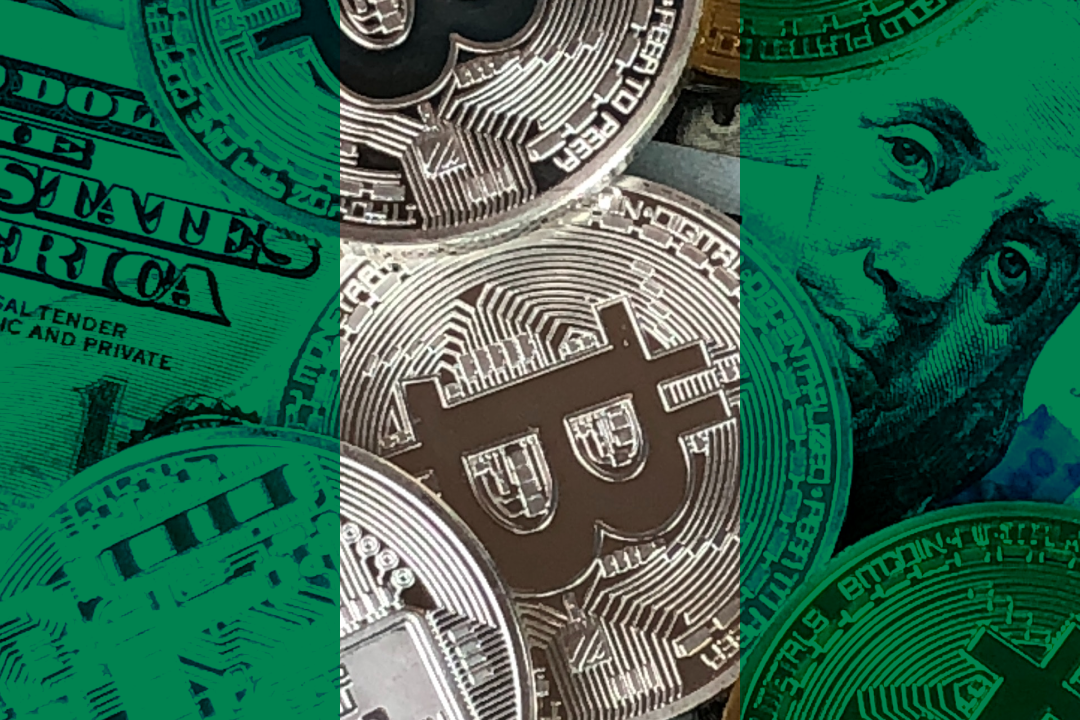The Role Crypto Plays in Nigeria
Two hundred million people, an emerging economy, and one of the leading countries in crypto adoption. Yes, we are talking about Nigeria - the country with the largest economy and population in Africa which is setting a precedent by starting to leverage cryptocurrency to mitigate the results of poor governmental economic policies. But before we dissect the reasons behind cryptocurrency’s success in Nigeria, let's first understand its economic and historical background.
Basic Overview of Nigeria
Africa's history is at the intersection of slavery, warfare, and an array of challenges. Nigeria, like its neighboring countries, also lacked comfort and serenity, despite the abundance of natural and mineral resources. Independence was meant to bring the luxury of growth and infrastructural development, but like the cues from its continental neighbors suggested, prevalent corruption have made the country struggle. As a result, almost 50% of its citizens are below the poverty line and a third does not even have an access to a bank account, with constant electricity being a luxury rather than a standard.
The lack of accountability in Nigeria means that it often experiences double-figure inflation, government corruption, terrorism, police extortion, and several other kinds of frauds that no one will be held responsible for. These crises were amplified during the coronavirus pandemic, making way for a never-before-seen inflation rate, economic strains and heightened police brutality. The current government drove the nation's economy into two recessions in the space of four years. The silver lining is that Nigeria's population predominantly comprises young people who are unemployed and have only known the internet age.
But you can’t expect a population of 62% under 25 years old with internet access to stay docile forever. The youths have turned to using blockchain technology to meet their ends. Despite several government antagonisms against their newly found source of hope, cryptocurrency adoption has been increasing in Nigeria by the day.
Cryptocurrency Adoption in Nigeria
Globally, there seems to be a correlation between corruption and huge crypto optimism. Countries that rank high on Transparency International's Corruption Perception Index have a low overall perception of cryptocurrency as an asset class. Since Nigeria ranks low on the Corruption index, with an overall score of 24 (the closer to zero, the more corrupt), locals deem cryptocurrency as a better alternative to the local banking system controlled by the corrupt politicians.
Corruption pervades the Nigerian government at all levels, from high-level contract fraud to tiny bribes, money laundering schemes, embezzlement, and even police assaults on youth and motorists, and to offer a hedge, young Nigerian are turning to crypto as a safe haven to avoid being victim of the authorities’ hostile practices. It is not uncommon to hear words like "poor in Naira, rich in crypto" among Nigerian youths.
Statistics from Finders.com, a comparison website that deals with finances shows that 70% of all crypto owners in Nigeria are people less than 35 years old. This is a huge skew compared with the global percentage of 55%.
A Chainalysis report in 2022 also ranked Nigeria at the 6th position in the list of global adoption worldwide. This is a somewhat subtle achievement when compared to the fact that Nigeria's Bitcoin trading volume in 2020 more than doubled that of the whole Eurozone. The growth of peer-to-peer trading was largely a driver of the growth, with more yet to come given that Nigeria still ranks high in Google Trends’ 2021 list of countries that search crypto-related words.
The eNaira
Shortly after Nigeria's central bank banned cryptocurrency (will be discussed below) and crypto-related activities, it released its central bank digital currency, the eNaira. The eNaira, released in October 2021, did not seek to replace the fiat. Rather, it was its digital representation. Launching the eNaira put Nigeria on the map as the first African country to have a CBDC.
The benefits of the eNaira are almost countless. First, there is no transaction fee when users transfer eNaira from their bank accounts to their eNaira wallets and from one eNaira account to another. Also, with a history of disbursed funds missing before reaching recipients in Nigeria's incumbent fiat system, the eNaira is an improved solution offering a more transparent system where no funds should get lost.
Another advantage of the eNaira is in banking the unbanked and aiding cross-border remittances. The eNaira is designed to work even without an internet-enabled phone. Better put, it could be accessible with only a USSD code, which is an easier way to bank the unbanked. The framework for cross-border payments with other CBDCs was included in the white paper, and this would prove vital in increasing the country's remittances market.
Although the eNaira application almost immediately had one million downloads on the Google Play Store and Appstore, the increased hopes in digital inclusion were quickly dashed when it proved to be completely bugged. Some financial analysts have also criticized the lack of a viable plan to protect uneducated people living in rural areas from scams caused by stolen passwords and account hacks.
Reasons Crypto Thrives in Nigeria
Foreign Exchange Policies
One reason cryptocurrencies thrive in Nigeria is because of the shady foreign exchange policies. In a country with four different exchange rates and citizens unable to understand what (if any) methods are employed to reduce deterioration in the country's finances, the Central Bank of Nigeria (CBN) hasn’t rolled up its sleeves to initiate foreign exchange reforms. Moreover, it stays inactive upon the threat from the IMF about merging the multiple exchange rates before the nation can get another loan that could help tackle double digit inflation. Perhaps it should not come as a surprise seeing that there is a conflict of interest between the central bank governor and the minister of finance.
Corruption
Is there any way governments can show transparency and foster trust in the nations' finances? Yes, with cryptocurrencies, this is possible. The Nigerian government got wind of this and banned cryptocurrency and crypto-related activities within the country. How did they do it? In 2020, a protest tagged ENDSars was held throughout the nation. The peaceful protest was a product of disgruntled frustration caused by an arm of the Nigerian police called SARS (special anti-robbery squad). The primary function of SARS is to tackle armed robbery and theft, but they transcended to being the custodian of brutality, harassment, and extortion. Nigerians became mandated to carry receipts of their laptops, and this didn’t guarantee their safety. It might come as a shock, but anyone using an iPhone was an immediate target by the SARS group and to cap it up, mobile phones were randomly searched to see cash inflow and outflows. Having a large sum of money in your account could mean you would “show them some love” (a term used to glamorize extortion). Both home and abroad, Nigerians stood in solidarity against this dysfunctional group and it shook the very foundation of the nation’s government.
Ten days into the protest, the government announced it had disbanded the criminal arm of the police, and victory shouts could be heard around the nation. Well, that was all a farce to appease the public. In reality, the unit was never disbanded.
Perhaps, the detail of the protest that confounded the Nigerian government was how the youth could get funding from around the world without using traditional banks. They could counter the former through account closures, but the latter definitely not. Cryptocurrencies played a huge role, and even the former CEO of Twitter, Jack Dorsey, was among the sponsors of the 9.9 BTC received ($150,000 as of the time received).
While the protest didn't yield the expected result, as the Nigerian government resulted to military force to kill its own people, and the SARS units still roam the streets profiling young men and extorting them, it marked a new dawn for cryptocurrency usage in the country and played a big role in its ban the next year.
Economic Squeeze
Nigeria is predominantly an oil-exporting nation. With over 90% of its foreign exchange revenue coming from oil, its economy experienced a squeeze in 2014 when oil prices plunged. The coronavirus pandemic, which happened years later, proved to be the straw that broke the camel's back. Missing the opportunity to devalue the Naira in 2014, Nigeria's central bank did not make up for the lost opportunity. Instead, government officials have diverted public funds and kept the country reeling in debt. This has made Nigeria the world's poverty capital, and the economic strain has led millions of Nigerians to seek cryptocurrencies as a hedge against this failing currency.
The 2021 Crypto Ban
Cryptocurrencies cannot be banned, and this scared the Nigerian government. While they knew this theoretically, the reality dawned when the central bank of Nigeria banned crypto and crypto-related activities on February 5, 2021. The government took the ban further by asking traditional banks to identify and close the bank accounts suspected to be involved in receiving crypto payments (either through the frequency of payments or through the transfer descriptions). The ban was a setback for local cryptocurrency exchanges and many cryptocurrency companies that relied on commercial banks to facilitate transactions between sellers and buyers. But crypto users found workarounds with decentralized exchanges and peer-to-peer transactions. The ban has made crypto activities less trackable by regulators while trading volume continues to grow.
The truth is that the government seems to be divided on how to embrace crypto, considering that even the Nigerian vice president condemned the ban.
What the Future Holds for Cryptocurrencies in Nigeria
Nigeria is a prime example of how cryptocurrencies can, at least partially, save people from government’s oppression and its poor decisions. The need for an alternative to fiat in Nigeria (and pretty much everywhere else for that matter) makes this country one of the largest crypto markets. Cryptocurrencies are a perfect fit to help solve the inflation and corruption problems in the country. However, many challenges still need to be overcome before cryptocurrencies can become mainstream in Nigeria. The major ones include more regulatory frameworks for crypto adoption and more education to help people understand the benefits of using them. While Nigerians await the government's move on providing a suitable environment for crypto infrastructures, peer-to-peer transactions will continue to thrive.
*This communication is intended as strictly informational, and nothing herein constitutes an offer or a recommendation to buy, sell, or retain any specific product, security or investment, or to utilise or refrain from utilising any particular service. The use of the products and services referred to herein may be subject to certain limitations in specific jurisdictions. This communication does not constitute and shall under no circumstances be deemed to constitute investment advice. This communication is not intended to constitute a public offering of securities within the meaning of any applicable legislation.




